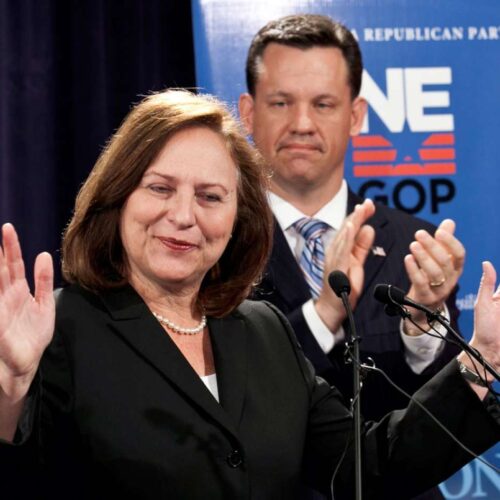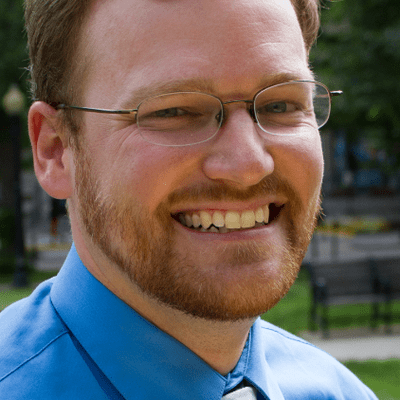Introduction
In the aftermath of Tuesday’s Republican U.S. Senate primary in Nebraska, campaign finance watchdogs are concerned about the role businessman Joe Ricketts played in helping underdog state Sen. Deb Fischer secure the GOP nomination.
Ricketts, the founder of the Omaha-based online brokerage firm TD Ameritrade, was behind a $250,000 last-minute super PAC ad buy designed to boost Fischer’s prospects in a three-way race that also featured frontrunner Jon Bruning, the state’s attorney general, and state Treasurer Don Stenberg, the favored candidate of the conservative Club for Growth and tea party-aligned Sen. Jim DeMint (R-S.C.).
Thanks to this spending surge and an eleventh-hour endorsement from former Republican vice presidential candidate Sarah Palin, Fischer garnered more than twice as many votes as Stenberg — and beat Bruning by 5 percentage points. Her upset came after she raised only about one-eighth of Bruning’s $3.6 million haul.
If she prevails in November against Democrat Bob Kerrey, a former Nebraska governor and U.S. senator, watchdogs worry Ricketts’ influence would be considerable.
“I don’t think there is any doubt Ricketts will get more access to Fischer than regular Nebraskans,” said Adam Smith, communications director at Public Campaign. “This is about electing politicians that will benefit his bottom line and the TD Ameritrade lobbyists will know they have a likely champion if she’s elected in November.”
This concern is echoed by Meredith McGehee, policy director at the Campaign Legal Center, which, like Public Campaign, favors campaign finance regulations.
“Washington is responsive to the people who got them in power,” said McGehee. “You know the old saying, ‘He who pays the piper calls the tune’? That’s the system we have.”
Ricketts’ super-sized contributions to a political group that ran ads advocating against Bruning and for Fischer are legally allowed in the wake of the U.S. Supreme Court’s 2010 Citizens United ruling. Previously, individuals were limited to giving just $5,000 per year to groups that made “independent expenditures,” the Federal Election Commission’s term for messages that explicitly tell people to vote for or against a candidate.
In addition to being the long-time chairman and CEO of Ameritrade, Ricketts is the patriarch of the family that owns the Chicago Cubs Major League Baseball team, which is currently seeking government assistance to renovate its Wrigley Park stadium. (The team also recently benefited from $99 million from taxpayers in Mesa, Ariz., for a new spring training facility and 15,000-person stadium that will be “the western headquarters for the Chicago Cubs.”)
Nebraska’s primary marked the reemergence of the Ending Spending Action Fund, which had been dormant since the 2010 midterm elections. Ricketts is the sole individual donor to the group, having given more than $1.4 million. The conservative super PAC seeks to eliminate government spending that it deems wasteful and reduce the national debt.
Spokesmen for neither Ricketts nor the Ending Spending Action Fund responded to questions for this story.
Kim Hillyer, a spokeswoman for TD Ameritrade, stressed that Ricketts retired from the company’s board of directors last year and that his political activities were “independent of TD Ameritrade.”
Over the past decade or so, the extremely wealthy Ricketts has become increasingly active in his political giving, and he hopes to see a Republican prevail over President Barack Obama in November.
He made his first five-figure federal-level donation in 2004, when he gave $25,000 to the Republican National Committee — a group that has received more than $100,000 from Ricketts to date.
On Thursday, the New York Times linked Ricketts and the Ending Spending Action Fund to a controversial proposal to attack Obama for ties to Chicago minister Jeremiah Wright, who gained prominence during the 2008 presidential campaign for his charged sermons. (Brian Baker, the president of Ending Spending, has stressed that this proposal hasn’t been adopted and was “only a suggestion for a direction to take.”)
In this year’s presidential contest, Ricketts has taken the “anybody but Obama” mantra to heart. And with his checkbook, he has spread his loyalty.
Former Minnesota Gov. Tim Pawlenty was the first GOP presidential candidate to win Ricketts’ financial support. But in December, after Pawlenty had bowed out, Ricketts doled out the legal maximum of $2,500 to all eight of the other major GOP candidates in the field — from frontrunner Mitt Romney, the now-presumptive nominee, to dark horse candidate Gary Johnson, the former New Mexico governor who has since been become the Libertarian Party’s presidential nominee.
Notably, last December, Ricketts also gave $500,000 to the anti-incumbent super PAC known as the Campaign for Primary Accountability.
In all, records show Ricketts has given in excess of $2.4 million to more than five-dozen candidates, parties and political committees since 1999, according to Federal Election Commission records, and his wife has donated nearly $200,000.
These donations have overwhelmingly supported Republicans and conservative groups.
Attorney Stephen Hoersting, who co-founded the anti-regulatory Center for Competitive Politics, says the campaign finance reformers’ fears of Ricketts posing a threat of corruption — or having undue influence on a politician such as Fischer — are overblown.
A lawmaker, once elected, he argues, is “always more beholden to the voters who elected him or her.”
“No access Ricketts may have will be enough to persuade Fischer to get sideways with the voters who elected her,” he added. “Remember, there are super PACs on the other side waiting to scour her voting record, now and into the future.”
Read more in Money and Democracy
Money and Democracy
Obama, Dems dominate GOP in April fundraising
Romney super PAC falls short despite hedge fund haul


Join the conversation
Show Comments